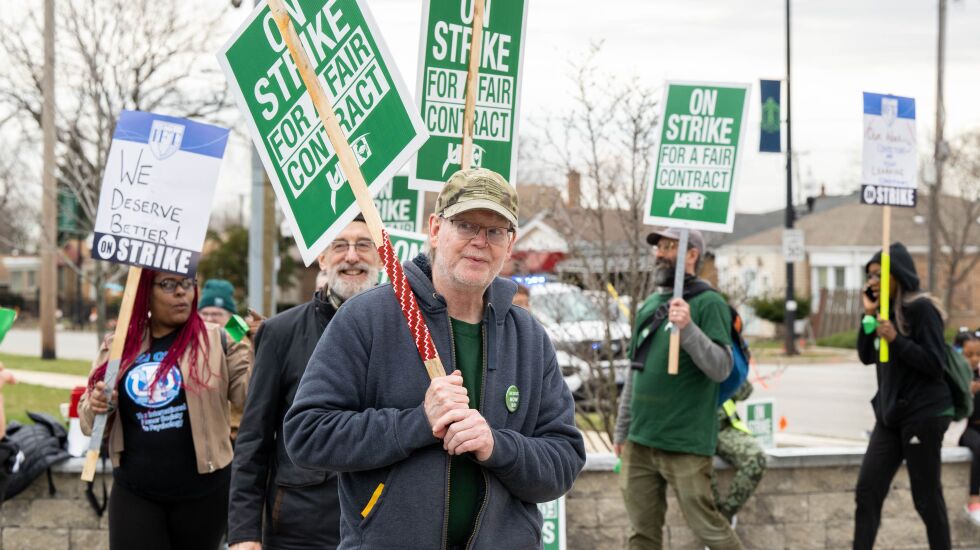
A 10-day strike at Chicago State University has been suspended after professors reached a tentative agreement with administrators over the weekend. Faculty will return to class on Monday.
Union representatives said details of the four-year agreement will not be released until members have voted on it. A date has not been set.
According to details of salary proposals released by the union on Friday before an agreement was reached, faculty had asked for a 6.5% increase in the first year of the contract, while administrators had offered 3% and a $1,000 lump sum payment.
In a statement released Sunday evening, Chicago State faculty union President Valerie Goss said the deal provides pay increases for faculty and staff “while recognizing the university’s financial constraints.”
“Most importantly, this agreement ensures that our members can make up critical time we lost supporting our students during the strike through extended office hours, tutoring sessions, registration meetings, exam sessions, and other services,” Goss said in the statement. “From Day One, our dedicated faculty and staff have prioritized student needs, so this component was essential to reaching an agreement.”
According to a statement from Chicago State leadership, the tentative agreement addresses wages, workload and parental leave and “accomplishes the goals of both parties to reach an agreement that recognizes the valuable contributions of the faculty and academic support professionals with appropriate consideration for the fiscal position of the University.”
Professors at the Far South Side campus are some of the lowest paid in the state, according to the National Education Association. The public university is the only one in Illinois that serves a majority-Black student body.
The strike at Chicago State set the stage for a wave of strikes at public universities across the state. Faculty at Eastern Illinois University in Charleston walked off the job April 6 before securing a tentative agreement last Thursday. Faculty at Governors State in the south suburbs have been on strike since April 11.
Faculty at Northeastern Illinois on Chicago’s Far Northwest Side filed an intent to strike with the state’s education labor board on Thursday and could walk later this month.
State funding for higher education has been cut nearly in half over the past two decades, according to data from the Illinois Board of Higher Education. That has forced public universities to fund more and more of their budgets with tuition and fees collected from students.
But smaller regional public universities like Chicago State, Governors State, and Eastern Illinois serve larger proportions of students from low-income families who are not necessarily able to afford tuition increases. That has impacted enrollment and further hurt the finances of smaller public universities.
During negotiations at Chicago State, administrators cited financial constraints brought on by the pandemic and enrollment declines. Union leaders acknowledged these constraints, but said university leaders needed to prioritize educators who directly serve students. They criticized the salary awarded to Chicago State President Zaldwaynaka Scott by university trustees.
According to her 2022 contract, Scott earns $425,000 a year. Data from the Illinois Board of Higher Education show she is the fourth-highest paid public university leader in the state.
Union leaders said this strike and others at Eastern Illinois and Governors State were unusual in administrators’ attempts to continue classes. Emails show university leaders reaching out to community members to serve as substitute teachers, promising per-course payments for those with master’s degrees.







